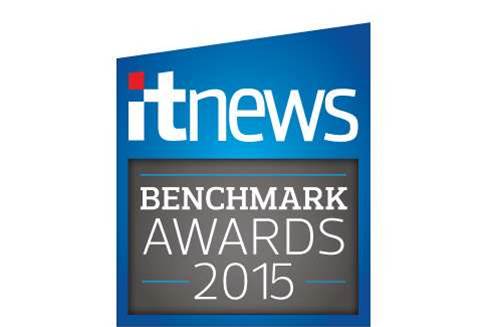The finalists in our education category know that a solid technology base is critical for Australia's economic future.

As Australian schools and universities battle it out in an increasingly global market, it is innovations like the projects below that will give organisations the edge in a crowded sector.
Our education finalists recognised that two brains are far better than one, and have placed collaboration and mobility at the centre of their respective approaches.
Please join us in congratulating:
 |
Sendur Kathir - University of Melbourne NeCTAR Research Cloud A vision for a zero-cost-barrier computational infrastructure that could be accessed by any researcher in Australia has given rise to NeCTAR, an innovative use of national university resources delivering 25,000 cores of compute capacity to the Australian research community. Kathir and his team provided the anchor node of what has since become an eight-point cloud system, and designed the fabric infrastructure of the national cloud. Once WA and NSW come online this month, each of Australia’s states will be contributing a node to NeCTAR, which offers researchers and students from any Australian university a base access to two servers for free. To date over 5000 scientists and innovators have used the pooled resources to further 700 projects. The spirit of collaboration also influenced the team’s choice of technology, and has led to what is now the largest deployment of the OpenStack open source cloud platform in the southern hemisphere. |
|
 |
William Confalonieri - Deakin University Deakin Anywhere There's no rest for 2014's CIO of the year William Confalonieri, who this year completed a two-year program of work to build an end-to-end communications, productivity and collaboration toolset based on a full suite of Microsoft products, including Lync SharePoint and Office 365, together with Yammer and Office Apps for iOS. Confalonieri and his team took an ‘all-in’ approach to delivering easy ways for both students and staff to communicate and share information irrespective of location or device. They are pursuing a cultural shift where users can replace email with more efficient messaging and collaboration. Through initiatives like this, Deakin is working to differentiate itself as an education provider through its technology leadership. |
|
 |
Mitra Bhar - NSW Board of Studies, Teaching and Educational Standards MarkManager Mitra Bhar and the NSW Board of Studies have spent several years developing MarkManager - an online HSC marking platform that allows external professionals to access anonymous, scanned HSC scripts from the comfort of their own homes and automates the workflow of scoring and calculating marks. The ultimate aim of the MarkManager expansion is to reach a point where all HSC markers can access their work from home, getting rid of the costs associated with renting expensive marking centres. It is currently used for about 40 percent of the 1.25 million HSC papers completed each years and is well on its way to expansion. MarkManager also acts as a single hub for training material and quality assurance by marking supervisors, so marker proficiency can be checked before live scoring commences. Its applicability to a wide range of testing scenarios has already piqued the interest of a range of other organisations in the potential adoption of the tool. |
Special thanks to our sponsors: The Australian Computer Society, Dimension Data Learning Solutions, Samsung, Brother, Intel and Dynatrace. Winners will be announced at the 7th CIO Strategy Summit to be held in February at the Grand Hyatt Melbourne.




_(20).jpg&h=140&w=231&c=1&s=0)
_(28).jpg&h=140&w=231&c=1&s=0)





 iTnews Benchmark Awards 2026
iTnews Benchmark Awards 2026
 iTnews Executive Retreat - Security Leaders Edition
iTnews Executive Retreat - Security Leaders Edition
 iTnews Cloud Covered Breakfast Summit
iTnews Cloud Covered Breakfast Summit
 The 2026 iAwards
The 2026 iAwards











_(1).jpg&h=140&w=231&c=1&s=0)



